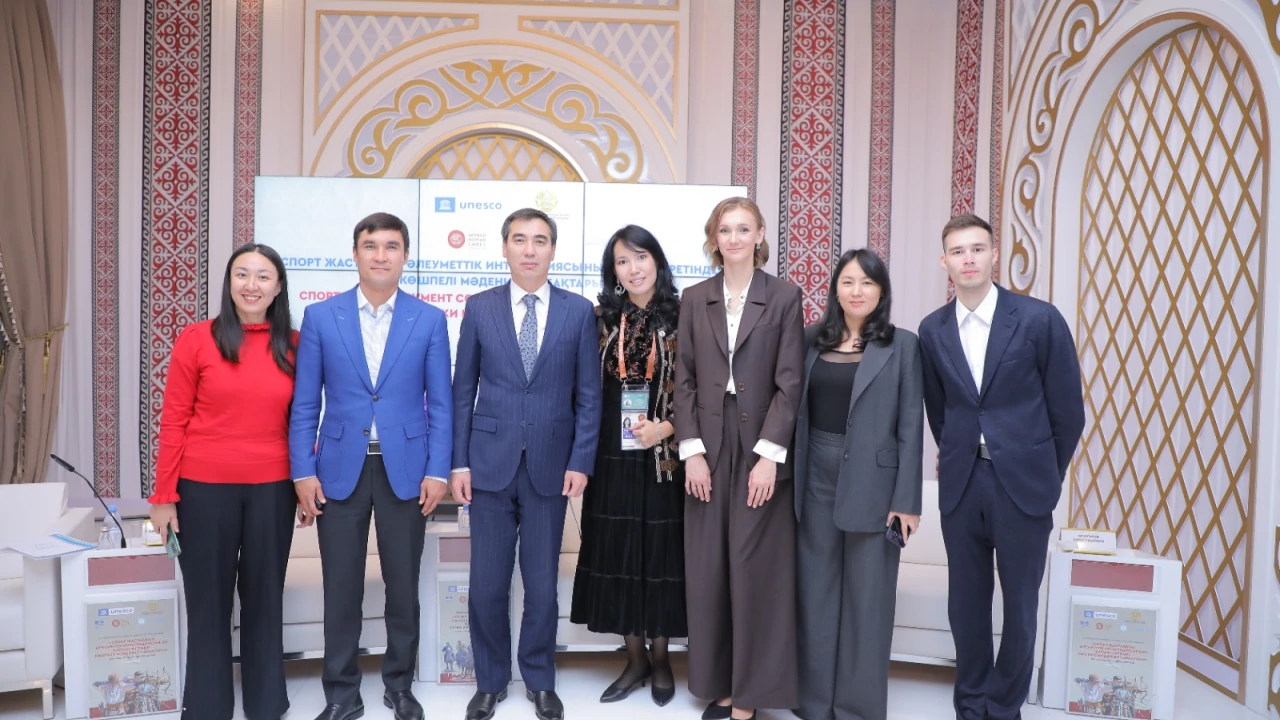
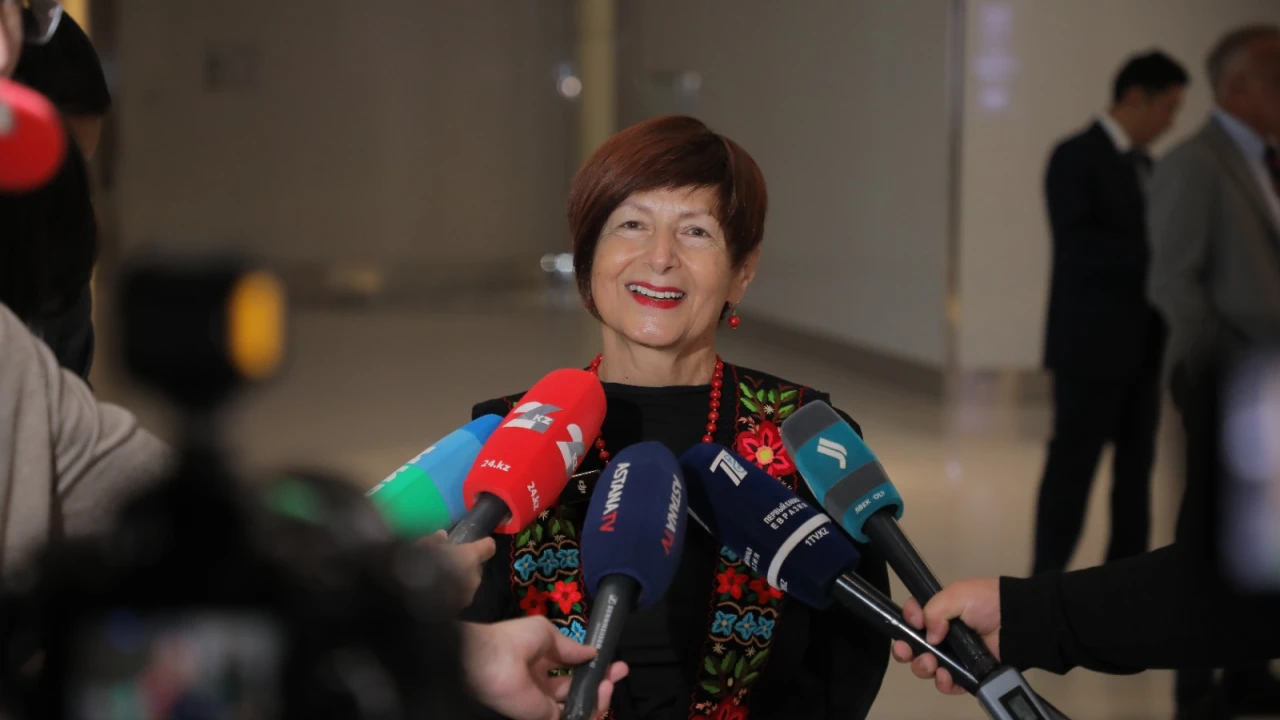
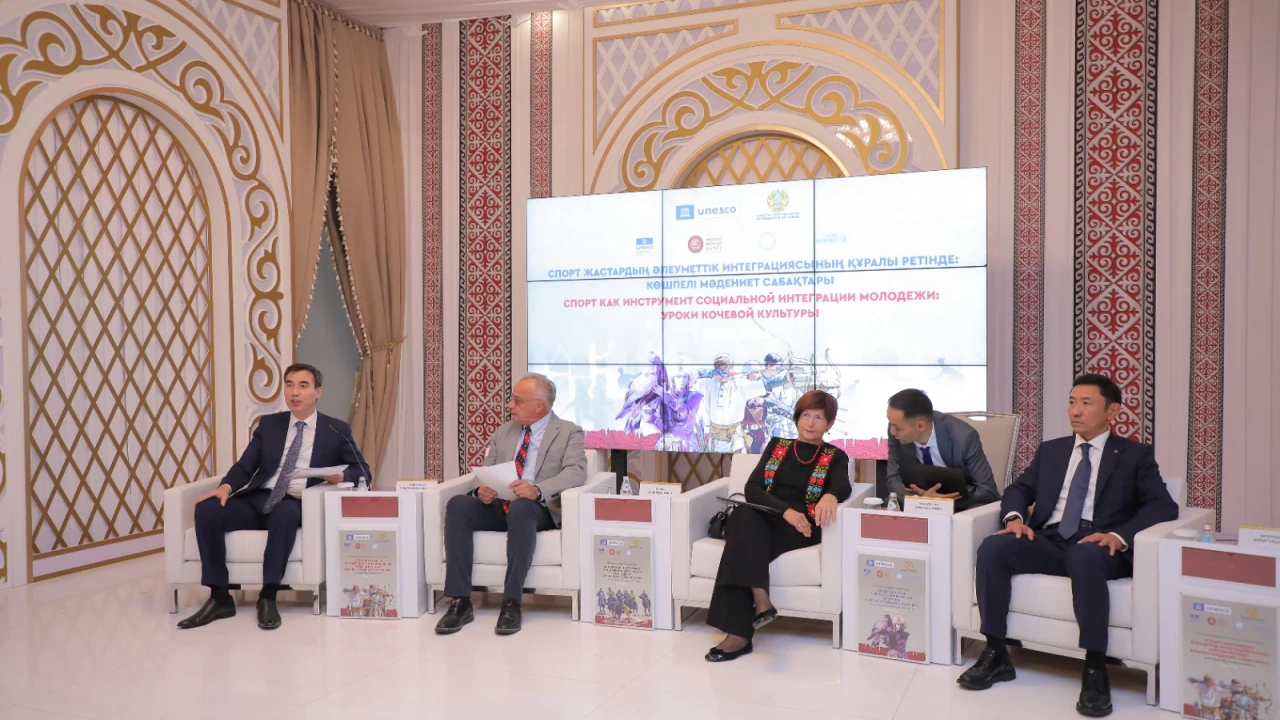
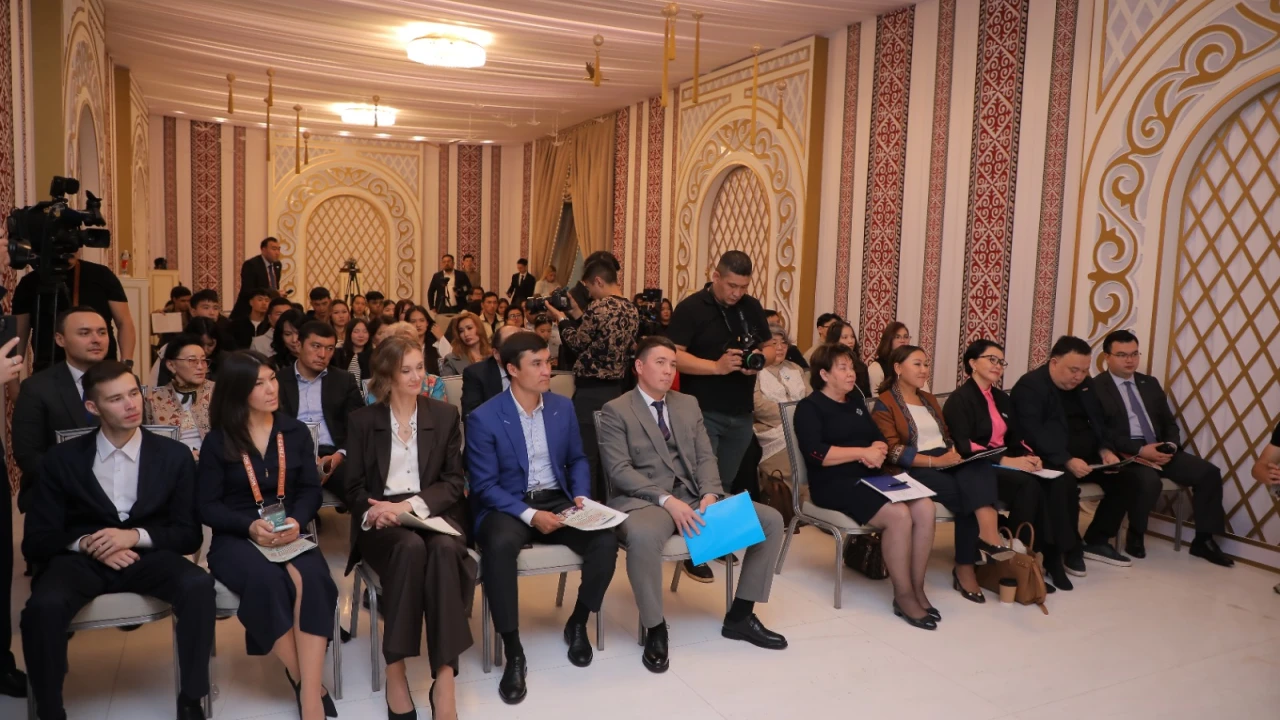
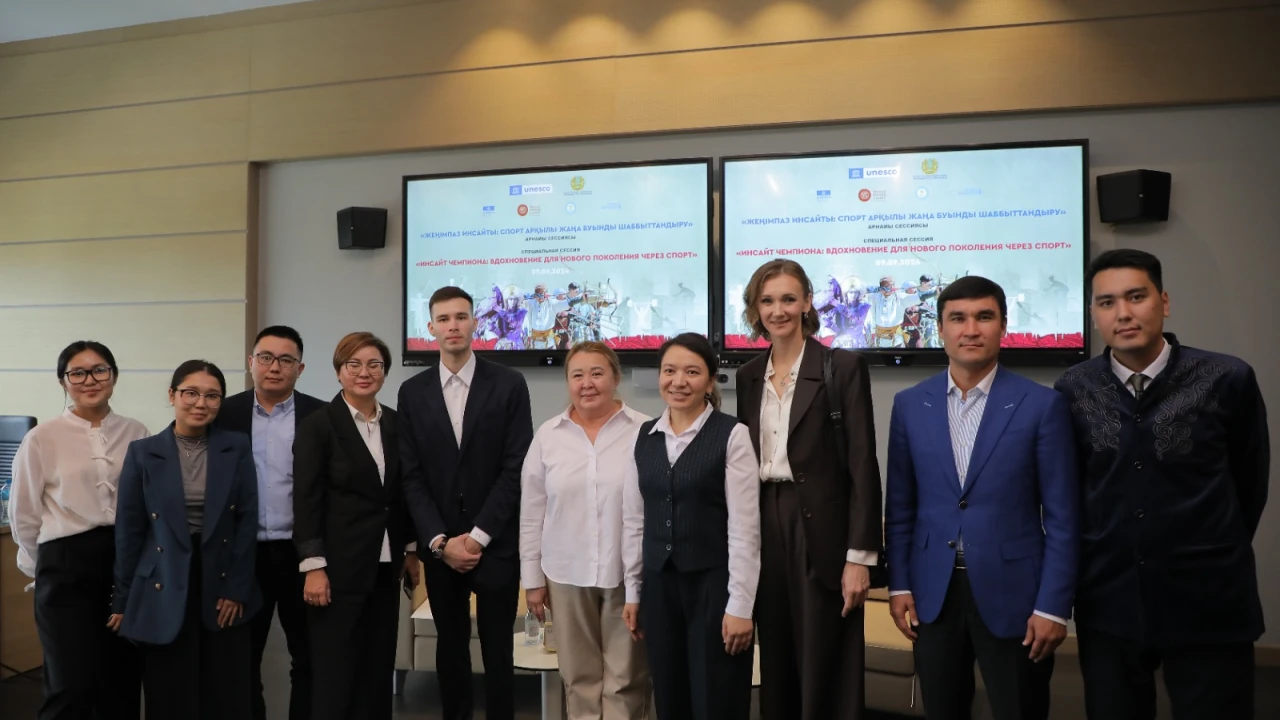
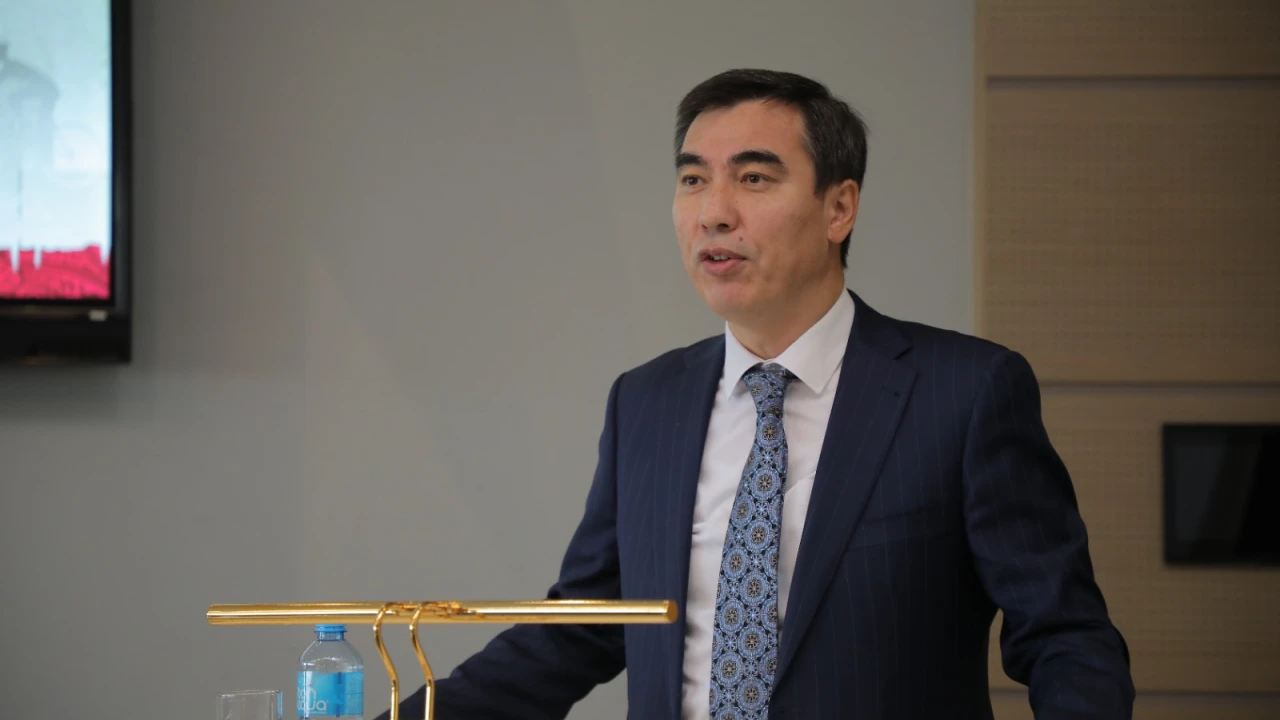
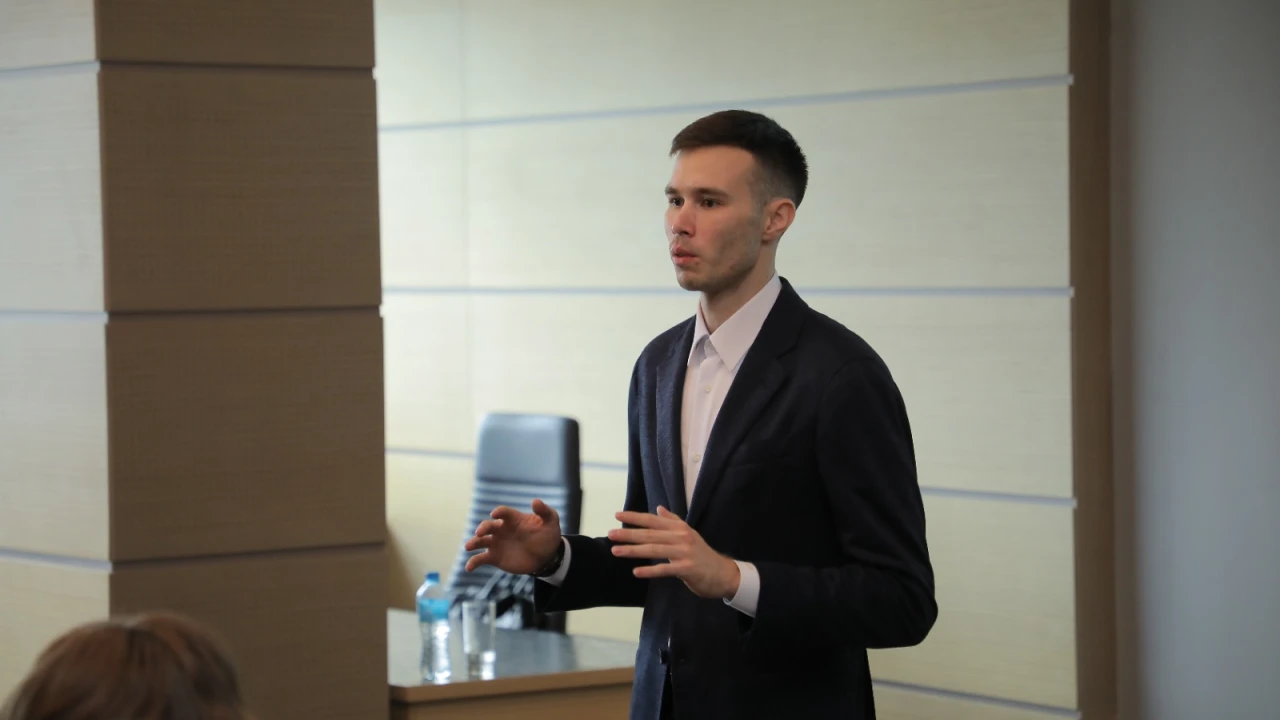
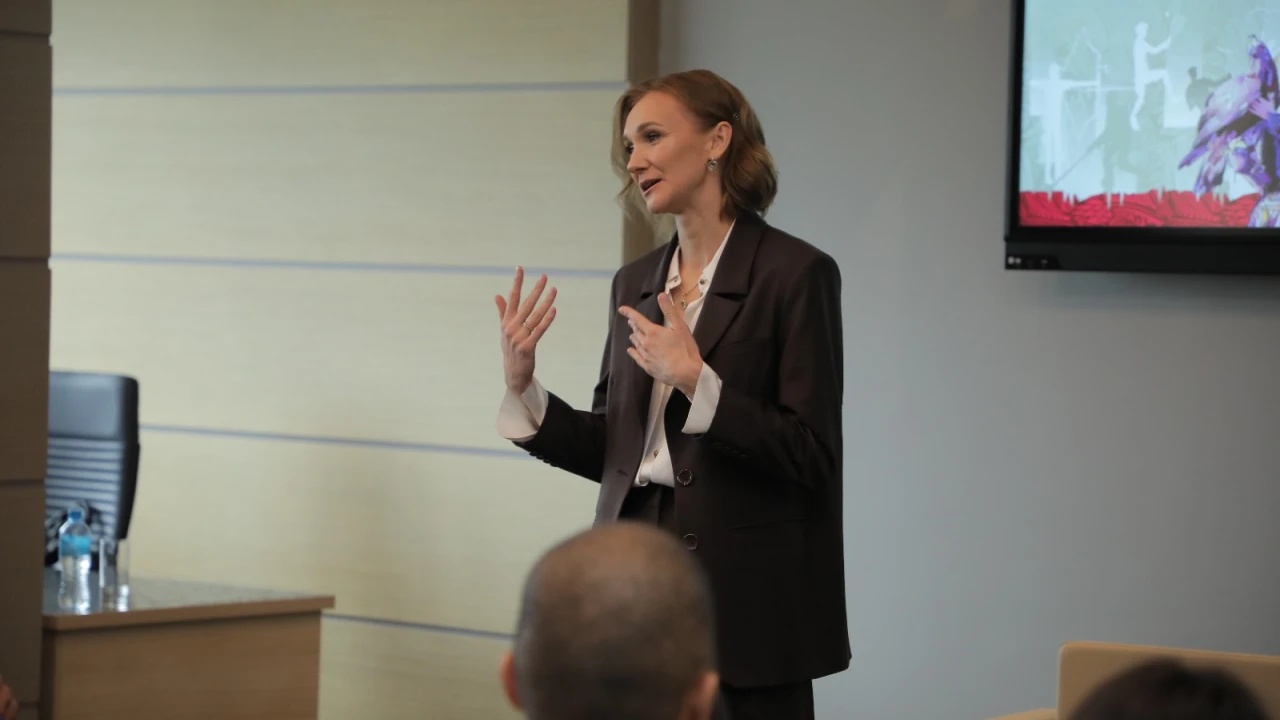
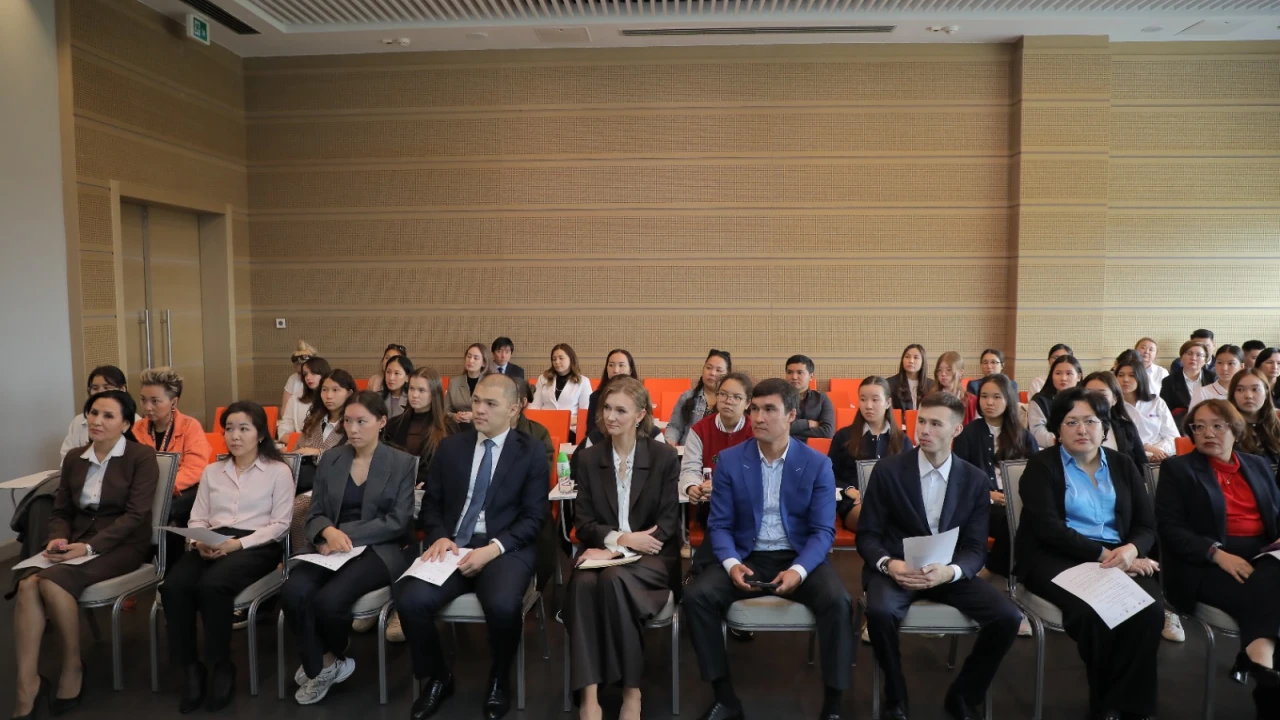
The International Conference "Sport as a Tool for Social Integration of Youth: Lessons of Nomadic Culture" was held at the Presidential Center of the Department of Presidential Affairs of the Republic of Kazakhstan within the framework of the V World Nomad Games.
The event was organized by the Presidential Center of the Republic of Kazakhstan and the UNESCO Almaty Regional Office, with the support of the Kazakhstan National Federation of UNESCO Clubs, the NOC of the Republic of Kazakhstan and UN Women.
The conference aimed to create a platform for the exchange of views and experiences among representatives of government agencies, the academic community, civil society, and international organizations. The focus was on discussing the role of sports and nomadic cultural traditions in the social inclusion of youth.
At the beginning of the meeting, a special session ‘Champion's Insight: Inspiration for the New Generation through Sport’ was held, during which famous athletes - 2012 Olympic champion SerikSapiyev, champion of the Olympic Games in London, silver medallist of the Olympic Games in Beijing, bronze medallist of the Olympic Games in Rio de Janeiro Olga Rypakova and silver medallist of the Summer Olympic Games in 2024 Nariman Kurbanovaddressed the youth and shared their ‘success stories’.
During the plenary session, participants discussed how sport contributes to sustainable development, social cohesion and an inclusive society. This dialogue aims to highlight the importance of active actions and joint efforts in the field of youth development through sport and to promote closer interaction between all stakeholders in promoting these values.
More than 60 people took part in the conference.
In his speech, Bakytzhan Temirbolat, Director of the Presidential Centre of the Republic of Kazakhstan, noted that the idea put forward 10 years ago by Kyrgyzstan to hold international competitions in sports traditional for nomadic peoples of Central Asia found a lively response around the world, which was reflected in the steady growth in popularity of the World Nomad Games, expanding the geography of participants and increasing their number.
"As President of Kazakhstan Kassym-JomartTokayev emphasized in his speech at the opening of the V World Nomad Games, the culture and traditions of nomadic civilization have left an indelible mark in the history of mankind, and their revival at the present stage in the format of the World Games opens a new page in the centuries-old chronicle of nomads," B. Temirbolat quoted.
"This conference provides a valuable platform to explore how we can use the lessons of nomadic sports to promote intercultural understanding and social cohesion in our modern world. In today’s increasingly interconnected global community, it is essential to foster dialogue and mutual respect between different cultures, and sports offer a unique avenue for achieving this. In this context, the involvement of youth in sports becomes even more critical. Young people are not only the future custodians of our cultural heritage, but they are also the ambassadors of peace. By encouraging youth participation in sports, especially traditional games rooted in nomadic cultures, we help them develop a sense of belonging and a deeper appreciation for diversity. UNESCO is deeply committed to promoting these ideals through initiatives that highlight the importance of cultural heritage, inclusivity, and youth engagement. The World Nomad Games offer a unique opportunity to demonstrate the enduring value of these traditional sports," said Amir Piric, Director of the UNESCO Almaty Regional Office, UNESCORepresentative in Kazakhstan, Kyrgyzstan, Tajikistan and Turkmenistan.
Simona-Mirela Miculescu, Chairperson of the 42nd session of the UNESCO General Conference, shared her opinion on the inextricable link between sports, youth and traditions of nomadic civilizations.
"It is worth noting that on December 13, 2024, it will be 3 years since the inclusion of the World Nomad Games in the UNESCO List of Intangible Cultural Heritage, and last year, at the 42nd UNESCO General Conference, a Resolution was adopted on the preparation of a new UNESCO collection "History of Nomadic Civilizations". Today, besides being the beholders of humanity’s future, young people are the present. This resonates deeply with the essential teaching of Nomadic traditions, one of resilience building and an invitation to construct new horizons even in the hardest of circumstances. Nomadic culture teaches us that sport is the driving force in human life. In addition, in the spirit of the wise traditions of the nomads, sport opens a wonderful path to self-realization and achievements. Today, UNESCO fully supports the empowerment of young people in all areas of the organization's activities," said S.M. Miculescu.
According to Bolat Akchulakov, Advisor to the President of the Republic of Kazakhstan, and President of the World Federation of UNESCO Clubs and Associations, it is very symbolic that the conference is taking place within the framework of the V World Nomad Games, which vividly demonstrates how sports, traditions and cultural legacy can contribute to the education of future generations. According to the speaker, sport is one of the main directions for inspiration and motivation of a person, especially for young people.
"Kazakhstan highly appreciates cooperation with UNESCO. Our country firmly demonstrates its commitment to promoting high standards of physical education and upbringing. Last year, our republic became the head of the UNESCO World Federation of Clubs and Associations for the first time. Currently, sport is becoming not only a method of physical activity, but also a powerful tool that helps to unite and form a sense of belonging for young people from different cultures and social groups," Secretary General of the National Commission of the Republic of Kazakhstan for UNESCO and ISESCO ZhanarShaimenova said.
Sport is not just physical culture, but first, it is a way of life, which develops in a person discipline, will to win, determination and self-confidence, said SerikSapiyev, vice-president of the NOC of the Republic of Kazakhstan, 2012 Olympic champion. In addition, in his motivational speech, the speaker urged young people not to give up in the face of difficulties, not stop at what they have achieved and constantly improve themselves.
"The nomadic culture of Kazakhstan conveys to us many values that are reflected in sports. Nomads have always known how to be resilient, flexible and strong, both physically and mentally. They were able to find a balance between individual efforts and collective support. These qualities remain relevant today in sports and life. Sport, like nomad culture, teaches us to respect, appreciate each other and be united," said Olga Rypakova, champion of the Olympic Games in London.
Nariman Kurbanov, the silver medalist of the Summer Olympic Games in Paris, spoke about the development of mass sports in Kazakhstan, including the popularization of children's sports sections. The famous athlete voiced a proposal for the widespread introduction of children's gyms in secondary educational institutions of the country.
During the event, speeches were also made by Vice-Minister of Tourism and Sports of the Republic of Kazakhstan Miras Tulebayev, Deputy Chairman of the National Commission for Women and Family and Demographic Commission under the President of the Republic of Kazakhstan Elena Tarasenko, Acting Vice-Rector for Science and International Cooperation of the Academy of Physical Culture and Mass Sports Alina Ten, Acting Head of the office of UN-Women in Kazakhstan by Dina Amrisheva, Director of the TV channel "Sport Plus Qazaqstan" Askat Zhakaev, Chairman of the NGO "Assembly of Zhastars" TimurDzhumurbaev.
Following the results of the international conference, Recommendations will be developed for the further development and support of sports as a tool for social integration and sustainable development in Kazakhstan.
|
For reference: The World Nomad Games are international sports competitions in ethnic sports. The competitions are based on folk games of historically nomadic peoples of Central Asia. The Games are aimed at the development of ethnic sports and ethnic-cultural movements as a legacy of human civilization. The international sporting event was originally planned and carried out in the Kyrgyz Republic. Since then, it has expanded to include more and more nations and drawn interest from an extensive audience outside of Eurasia. With the transfer of the right to host the VIC to Kazakhstan, the list of countries hosting the Games has expanded. For the first time, the World Nomad Games were held in Kyrgyzstan. The city of Cholpon-Ata has hosted international competitions three times: - in 2014 - 583 athletes from 19 countries, 10 sports; - in 2016 - 1,200 athletes from 62 countries, 26 sports. - in 2018 - 2,000 athletes from 82 countries, 37 sports. The nomadic games are attended primarily by the countries where the peoples who are the heirs of nomadic civilisation live. Teams from all over the world, including countries that were not nomadic, are also scheduled to participate in the World Nomad Games in Astana. VIC today is the world's largest competition in national sports. According to the plans, about 2,500 participants from more than 89 countries of the world will arrive in Astana to participate in 6-day competitions both in sports arenas and in cultural and scientific programs. |



